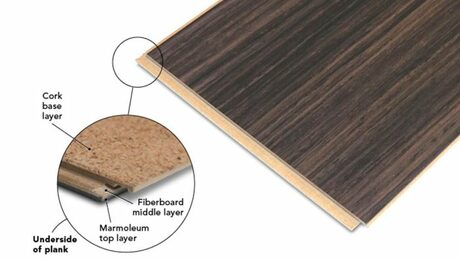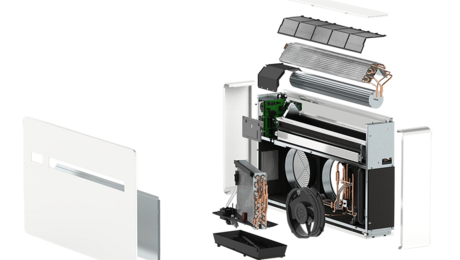How much for Peace of Mind?
gstan
| Posted in General Questions on
There is quite a lot of discussion on this site about
payback time for certain types of construction. Such as
heat pumps vs gas heat, or exterior insulation vs double
wall, etc. What I’m not seeing is much about likely effects
on payback time from inflation (or other Black Swan Events).
Black Swan Events are actually far more likely than a future
where everything stays about the same as it is today or
follows a path similar to the last 10 years (or any other
period you care to examine). Now, I know that an exact
calculation of the payback time for say double wall compared
to say 2×8 wall can’t be made, because no one knows what the
inflation rate will be for any given time period for the
particular type of heating/cooling/ventilation system chosen.
This is where the educated guess becomes relevant. Take
your best guess! How likely is it that we will have any
significant period (say the period you are likely to live in
a house that you are planning to build) with no or low
inflation? How likely is it that during that period no
bunch of fanatics and/or political morons (think North Korea,
Russia, some Islamic group, Etc.) won’t commit some
economically destabilizing act which drives up the cost
of energy to heat or cool your home?
This brings us to the question! Does it make sense to
design your home based on Return on Investment (ROI)
calculations based on today’s energy costs or would it make
more sense to assume if something can go wrong
it will go wrong and that the way to insure your economic
peace of mind is to go a little overboard on insulation levels
and other energy saving construction features?
I’m just an old retired gummer living in a semi-tropical
climate but for me there is no question – overkill is the
way. A few thousand (maybe even a couple tens of thousands)
in extra insulation, heat pump, or air tightness is a far
better investment than a bigger house or a more prestigious
neighborhood.
GBA Detail Library
A collection of one thousand construction details organized by climate and house part
Search and download construction details









Replies
You actually CAN project out future costs, it's called "present worth" and "future worth" calculations, and uses historical interest rates to get you close. I've always wondered how much you can really count on some of the values used for those calculations (like salvage costs estimates for end of life), but it's an accepted accounting methodology.
The general consensus on GBA is that trying to design entirely for ROI is usually not a good idea, because you should think about comfort levels too. Higher levels of insulation (within reason) usually also result in more comfortable homes, the same way improved levels of air sealing usually do. Window replacements are a great example here, because they almost never work out in terms of paying you back with energy savings, but they may make a big improvement in occupant comfort.
I disagree that investing in overboard levels of insulation is better than investing in a better neighborhood though. Resale value of homes is based mostly on things people can see, such as floorplan and interior finishes, than on hidden things like insulation. That's unlikely to change in the future, so you're going to get more return on investment by going into a more desireable area than you are going with beyond code levels of insulation.
When you factor in comfort though, extra energy saving stuff often makes sense. Going with extra exterior continuous insulation often makes a wall "feel" warmer in the winter (maybe cooler in the summer in Southern climates), which is a definite plus. The extra energy savings ends up being something of a bonus then.
Bill
If the situation you're trying to hedge against is a black swan geopolitical event that causes a massive discontinuity in energy prices, the right instrument to do so is a financial one, not your home.
Your home is but one of your exposures to energy price risk. It's one thing to try to minimize your home energy costs, it's another to try to try to decouple from macro factors entirely.
Calculate house energy improvement ROI based on historical trends, not six sigma events. Otherwise, you're just a "prepper". That's your choice, but acknowledge it as such.
This.
I'll add that all around the world there are places where people used to live and now don't. For multitudes of reasons. It doesn't matter how well-built your house is if you can't live there any more.
I'd guess there's a bit of "prepper" in most of us. maybe not a totally bad thing.
I don't know that a massive discontinuity is necessary - a small one or
a continuous one over time will do it. Let me give you an example:
During my working years (1966 - 2003+-) the price of gasoline varied all over the
place, jumping well over 30% per year several times then declining by similar
amounts. But the general trend was always higher - same thing for heating fuels
for houses. So I became real interested in super insulated houses when that idea surfaced in the early 70's. I designed, built and lived in 3 of them (lived in one or another for 26 of those years). Due to the nature of my job I had pretty good
idea of the heating cost of other similar size homes near mine (ROCKY MTNS
OVER 7000 FT.). During the LAST 5 OR 6 years these houses were putting
out $1500 to $2000 per year for heat - my all time highest heat bill for a full year
was $105.
I repeat, an EXACT calculation of the payback time based on estimated ROI
can not be made - did I save that much every one of those years? NO!
Was that period of time a black swan event? You decide!
Did I spend more money on those houses than the average house that size
in those neighborhoods cost? YEP!
Did I come out money ahead in the end? YEP!
IF you can - buy yourself a little insurance with a little overkill on energy
efficiency in house design.
We say in the classic sports car world, buy the best car you can afford. Same goes for building (or buying) your home.
Geopolitical BS be damned. I worry more about long term power outages than world events. My wood burning stove got me through many.
I think planning for 1 type of black swan event can make you less prepared for others. Sure, you’ll have the high energy prices one covered, but there’s many more that putting extra tens of thousands into insulation won’t help with. Keeping it in a savings account/having a lower debt level probably protects people better for the energy inflation and everything else.
To wit:
My aunt and uncle live in a small town in Iowa, population 22. It used to be a big town. It was founded in 1887 as a stop on the railroad, incorporated as a city in 1901.
Then the railroad stopped running. The local school closed in 1972. Per capita income in the latest census was a hair over $10,000.
There are lots of well-built houses from 100 years ago. They have no value because there's no reason to live there any more.
I do not think you can buy peace of mind.
The list of thinks to worry about is endless.
The way I look at it change is a constant but it seems to me almost every change improves the quality of my life.
I see change as a good thing. If you chouse to be pessimistic you can find the shadow under the pot of gold and complain.
Walta
There are a few unlikely events, that if they were to occur, would cause drastic disruption. If protecting yourself against them (or say 80% of their effects) costs a few $k, why not do it?
A few examples that I've implemented:
- I placed a gas mask in my office desk when I worked in NYC. I didn't advertise it to coworkers, but it only cost $25 and would have allowed me to walk through smoke and ash if needed.
- I store two weeks worth of bottled water in my basement. Again, just a few $$ but it could be used if needed
- I bought a Geiger counter, plastic wrap, tape and have a fall out shelter plan. Maybe 1/1,000 chance these might be needed, but for $300 I can get all the benefits of being a "prepper" without any of the stigma.
- I will probably include a wood stove in my home after it's built. Plan is to make it fully electric now, get the tax credits but to be ready for electricity to go from $0.31/kwh today to $0.50/kwh + tomorrow.
Disclosure: I'm a financial consultant and know that downside protection is more important than upside potential. Munger says to invert. Figure out what causes failure (not success) and work to protect yourself from that.